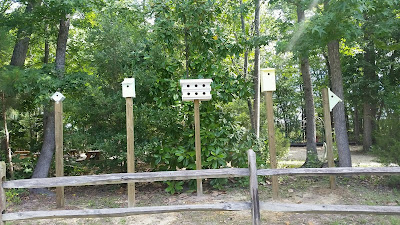Congratulations to Molly Nelms for completing the N.C. Environmental Education Certification. Molly is a creative specialist who uses art and environmental education experiences to connect people with the natural world.
Molly, a North Carolina native, said her favorite part of the certification program was the rediscovery of her home state. "The awareness and richness I rediscovered in NC was heart warming and reminded me of how special it is to have grown up here and to have been raised in this wonderful place of natural beauty and biodiversity."
She found that the program opened up new possibilities in her work as an educator and interpreter. When asked how the certification program changed her approach to teaching, Molly said, "The EE Certificate program redefined the way I will use my leadership and teaching skill set." Molly particularly enjoyed the personable experiences created by the instructors in the certification program. She said she appreciated "experiencing nature through their eyes."
For her community partnership project, Molly worked with Sylvan Heights Bird Park in Scotland Neck, N.C to expand and enhance the park's natural outdoor play area. Molly's goal was to support Sylvan Heights in bringing more creative play opportunities and resources for education programming to the children visiting the park. To do this, Molly used her expertise as a creative specialist to work with the park's Education Coordinator on designing several outdoor play resources.
With help from Sylvan Heights staff members, Molly painted and installed bird houses, added components to the park's sand cafe, created a mural about dinosaurs and fossils, and enhanced a nature trail around the playground.
Molly found that participating in the certification program also changed the way she approached environmental issues. "I became more engaged and participated in more action oriented community programs that bring about awareness and education for North Carolinians."
To learn more about the N.C. Environmental Education Certification, visit the Office of Environmental Education website.




